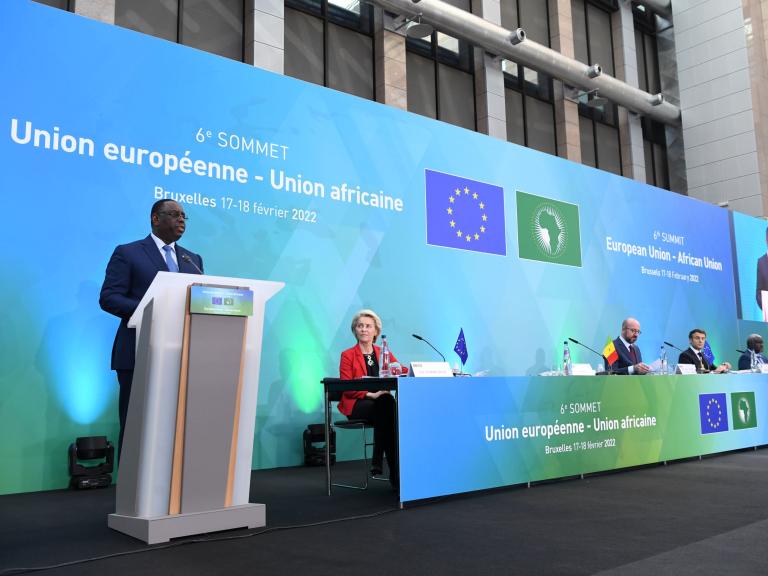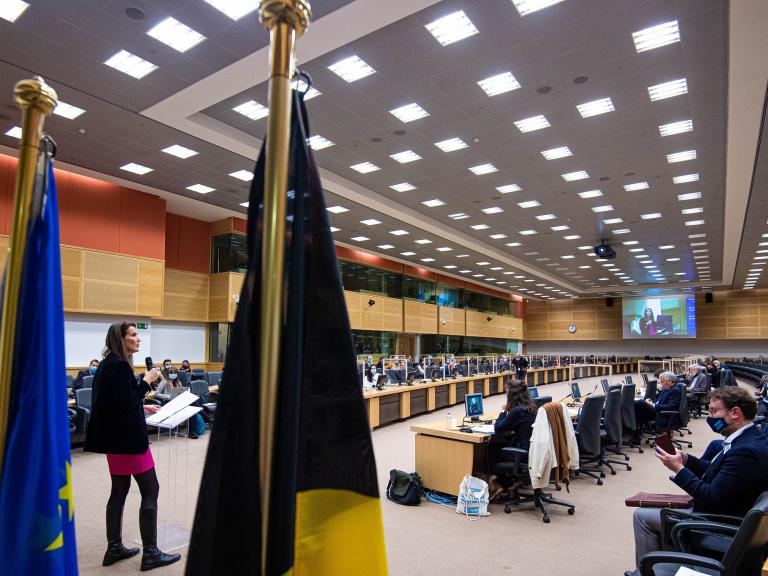-
Last updated on

© Shutterstock
Brief summary
The climate and energy policy of the European Union is based on three crucial pillars:
- energy security: security of supply has the highest priority, with attention being paid to sufficient diversification
- competitiveness: importance of energy prices and cost-efficiency, as well as completing the internal energy market
- sustainability: an integrated climate and energy policy contributes to achieving the climate objectives within the Paris Agreement and is in line with the efforts of the EU to reach a new comprehensive climate agreement at the global level.
In a context of crisis, and in order to meet the climate and energy transition goals, the Union is developing a strategic autonomy aimed at achieving the Union's energy independence. To this end, and as a response to the rise of energy prices, the REPowerEU plan has been implemented, contributing to the achievement of the pillars of energy and climate policy. The Fit for 55 package fulfils the Commission's climate and energy ambitions, enabling all sectors of the EU economy to reach this goal. It puts the EU on the right track to achieving its climate goals in a fair, cost-effective and competitive way.
In order to respond to the current challenges of the EU, it has been decided to develop a new framework for action up to 2030, in line with these three pillars and based on the objective to reduce greenhouse gas emissions by at least 55% percent compared to 1990 levels. To achieve these objectives, the Commission has put forward a set of legislative proposals that fit within the wider Green Deal context
All sectors of the economy need to contribute towards achieving this transition and realizing the increased ambition. Following the proposals of the European Commission and via the Fit for 55 legislative package, the European Emissions Trading System (ETS) has been strengthened and extended to include maritime shipping. The ETS system for aviation is strengthened and a separate ETS for buildings and road transport is also established. The CO2 standards for passenger cars and vans are being tightened. Additionally, regarding the agriculture and forestry sectors, national objectives are imposed on the Member States, as is already the case under the current effort-sharing regulation. The energy objectives – renewable energy and energy-efficiency – have also been strengthened, and specific sub-objectives have been defined for other sectors, including for transport.
Objectives for Belgium
Belgium has always constructively supported the above-mentioned pillars of an integrated European climate and energy policy. Climate policyon the one hand, energy security and the completion of the internal energy market, on the other, should not be seen as mutually exclusive, but instead as complementary. Belgium is also pursuing the European objective of achieving European energetic autonomy and independencet.
The Emissions Trading System (ETS), in which companies must purchase allowances if their emissions exceed the emission allowances allocated to them, has been structurally strengthened and will remain one of the cornerstones of the EU’s climate policy for the period post-2030. A tightened-up framework for carbon leakage, to protect the energy-intensive European industry, in particular via the carbon border adjustment mechanism, is and will remain a sustained point of consideration for Belgium. Furthermore, the promotion of modern low-carbon technologies and innovation remains a focus point, with an increase in the various existing funds to cover this, following the agreement reached on the revision of the ETS. Belgium will benefit from this.
Belgium endorses the European ambition of becoming climate-neutral by 2050. Regarding the Green Deal, Belgium shares the existing broad consensus on the sustainable transformation of our society and our economy, as well as the idea that the Green Deal can lead to numerous opportunities and a positive agenda.

EU-AU summit: two unions, one vision
In Brussels, the European and African Union developed a hopeful plan for the future that should bring prosperity and stability t...

EU: more democracy in practice
Geography teacher Rafik Kiouah talks about his participation in a Belgian citizens' panel on a more democratic EU as part of the...

The EU joins forces for external action
The European Union is combining various funding channels into a single instrument: Global Europe. The simplification will give t...
